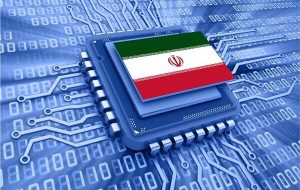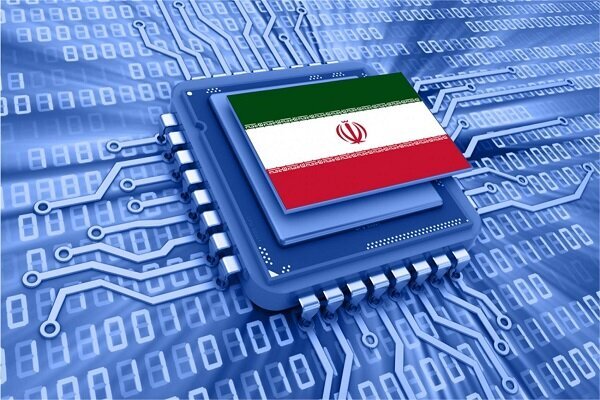A nation of networks: Iran’s NIN unmasked
TEHRAN – The Internet-based digital revolution is racing ahead like a runaway train, leaving policymakers in its dust or even less. In the fast lane, countries are struggling to keep up with the lightning-fast evolution of, now ubiquitous, AI-powered products. But one country, Iran, is stuck in neutral; its “National Network of Information” policy mired


TEHRAN – The Internet-based digital revolution is racing ahead like a runaway train, leaving policymakers in its dust or even less. In the fast lane, countries are struggling to keep up with the lightning-fast evolution of, now ubiquitous, AI-powered products. But one country, Iran, is stuck in neutral; its “National Network of Information” policy mired in misunderstanding and ambiguity. It’s a tale of missed opportunities, as the government fails to catch the digital wave, instead finding itself swept away by the tide of technological advancements. Will the Iranian government be able to reverse gear and get back on track, or will it be forever left in the slow lane, watching as other countries zoom past, leaving it in their dust?
Google agreed to follow Australia’s revenue model and executive instructions, advised by the country’s regulatory body when publishing news on its platform. When it comes to fake news and misinformation, countries such as France, Singapore, and the United Kingdom have also had successful experiences in persuading social media platforms to enforce their national rules.
The experience of the Iranian government working with the Durov brothers clearly shows that at least at one time, such a strategy was on the country’s agenda. However, the big question mark is whether the ruling system ever had objectives of this sort in mind while developing the national network of information.
These forms of cooperation – seemingly- don’t require documents adopted by the authoritative power and administration of vast bureaucracies. So, let’s think twice about this problem.
In 2000, Cord Meyer, a senior CIA officer, wrote a piece to heap praise on the CIA for its role in covertly establishing and sponsoring Radio Free Europe, describing it as one of the most prominent innovations of the U.S. in defeating the Eastern Bloc during the Cold War. In exploring the underlying cause of the unduly success of this project in the Eastern Bloc countries and the consequently widespread public dissatisfaction, he argues that the CIA was certain from the beginning that no matter how the Soviet Union and Western Germany responded to this emerging phenomenon, they were destined to fail.
In other words, the former CIA officer claims when, in 1950, the United States heavily invested in consolidating communication infrastructure (transmitting and amplifying frequency), started news-editorial offices, trained media personnel, and formulated agenda-setting principles for social phenomena, it was unequivocal that authoritarian communist leaders would merely resort to the conventional practices of physical interference such as making arrests, framing people, assassination, and strategies of that nature. It was like trying to stop an exponentially growing avalanche simply with a wooden barrier.
Thus, during the 1950s, Radio Free Europe amplified the population of ardent advocates of capitalism by thousands a day, while central governments in the Eastern Bloc -in blissful ignorance- were busy interrogating citizens on the charges of working for this medium.
NIN, from data to value
In the history books, the story of developing countries’ relationship with modern technologies, particularly ICT, is a familiar one. The same thought pattern emerges time and time again: the desire to form committees, commissions, and councils to tackle the latest innovations. But, as the clock ticks on, technology leaves policymakers in the dust. Take the example of Iran’s “National Network of Information”, a policy that has been touted as a solution to the country’s digital woes. But, in reality, it’s a phrase that’s as vague as it is ambitious. The problem lies in the ambiguity surrounding this policy, which has led to widespread confusion about what it actually means.
The concept of a “National Network of Information” is often seen as a substitute for the global Internet, but it’s a false equivalence. The two are fundamentally different, with the latter being a global network of interconnected computers, while the former is a domestic infrastructure designed to facilitate information exchange within a country. The issue is not just semantic; it’s a symptom of a deeper problem.
The macro-level approach that many countries take to represent themselves on the international stage often struggles to keep pace with the rapid evolution of technology. By the time policymakers are ready to present their first measures, technology has already moved on to the next big thing.
This is the tragedy of Iran’s “National Network of Information”. It’s a policy that has been hamstrung by bureaucratic red tape, leaving the country struggling to keep up with the digital revolution. The question is, can the Iranian government find a way to break free from this cycle of ambiguity, uncertainty, and fragmentation to develop a more effective strategy to harness the power of data locally?
That is to say, the fundamental questions of what we expect from the national network of information or what concerns have led us to develop such a policy (existential philosophy) take precedence over what it really is and how it works. Maybe it is time for us to proceed through the labyrinth of percentages and, once again, ponder their underlying existential logic instead of arguing about the scale of facts, which is basically an endless argument.
Considering the starting point of decision-making meetings in 2016 to determine the scope of the national network of information and the respective execution strategies in the country, it has taken four years for the government to enact the legislation in 2020, meaning the government has practically spent four years to legislate a phenomenon, knowledge of which is at least four years outdated. A four-year term with all the technological and economic advancement essentially leaves the former policies futile.
However, the issue is partly indicative of the unparalleled measures taken towards emerging technologies, which are not necessarily specific to developing countries. The problem is that ongoing regulatory structures need to respond more quickly to adapt accordingly to the evolving social and economic conditions, particularly up-and-coming technologies. Moreover, the bureaucratic structure of regulatory governmental institutions is entirely opposed to any risk-taking and cognitive flexibility.
Destined to fail
The national network of information focuses on such things as independence and self-sufficiency. To achieve these, we should understand the logic of layers in cyber governance instead of making active content that shows the culture, language, etc. We need a platform to publish the content, quality, and competitive advantage in the service layer, as well as the capacity in the infrastructure layer. In the past, when you owned high-quality content, for example, a TV show, you could show your culture and country. But today, it is obvious the internet value system platforms are linking chains between content and form, which are essential for the paramount. In this fast-paced arena, the only rule that can help the country is to reach a larger scale of audience.
An economic theory, commons, is a situation in which there is a shared resource system between consumers. Although each consumer acts alone for their own benefit and against the interests of others, this causes extinction with their collective activities. Different institutions broke down the entirety of this policy. The national network of information is quite the same as the tragedy of the commons.
On one hand, the economic prospect is the usage of international internet traffic in the country, while in another part, some are trying to get benefit from national traffic production. If we consider the national network of information as a political economy paradigm following the global definition, now the context of the World Wide Web and cyberspace shows us a new view. TikTok, WeChat, Yandex, Telegram, etc., have left their marks in cyberspace’s political and economic fields. These avant-garde trends never rely only on filtering, adopting documents, passing laws, forming supreme and non-supreme councils, fragmenting cyberspace, or allocating innumerable infrastructure subsidies.
A new era for local content: Opportunities and challenges
The country’s largest data shareholder, a prominent mobile phone operator in Iran, possesses the most advanced tools to monitor and assess the impact of various platforms on national and international internet traffic. Instead of allocating subsidies and support solely to data centers, internet infrastructure, equipment, or operators in Iran, the operator could redirect these resources to social media platforms based on their influence on national traffic consumption in each sector. This would enable the optimization of infrastructure investments and promote a more targeted approach to supporting platforms that drive local traffic growth in Iran.
Ultimately, the key to effective policy-making is to steer the industry towards the benefit of national traffic in Iran. Rather than burdening consumers with the costs of differences in price and quality between national and international traffic, major stakeholders like mobile phones and fixed operators in Iran should prioritize the promotion of local traffic consumption. When operators are incentivized to generate national traffic and platforms prioritize local content, a new order emerges, fostering a data ecosystem as a “national asset” in Iran. This approach would enable the country to leverage its digital infrastructure and data resources to drive economic growth, promote innovation, and enhance its global competitiveness. True and organic nationalization of the Internet industry at the local level can be achieved when all stakeholders work towards developing high-quality digital products throughout the Internet value chain, ultimately benefiting the nation as a whole.
